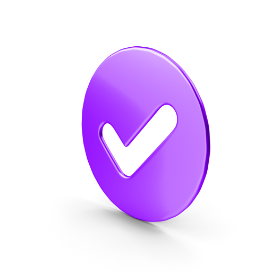If you’re looking to buy a property, you might be feeling confused about whether a fixed rate or variable rate mortgage is right for you. Both home loan types have their own sets of advantages and disadvantages, so it is important to review these and consider which is best suited to your situation. In this blog post, we’ll explore the differences between fixed and variable rate home loans to help you make an informed decision.
What is the difference between a fixed rate and variable rate mortgage?
Fixed rate home loans
A fixed rate home loan means that your interest rate stays the same for a set period of time, which will usually be between one and five years. Once you’ve reached the end of this fixed rate period, your loan will change to a variable rate unless you elect to fix it again. There are a range of pros and cons to having a fixed rate mortgage, and it is important to consider these before fixing your home loan.
The advantages of a fixed rate home loan include:
- By nature, a fixed rate home loan means that you will be paying the same amount despite rate fluctuations in the industry. This can be very helpful with budgeting and managing your finances.
- Since your repayments will stay fixed during the set term, any interest rate rises won’t affect you.
The disadvantages of a variable rate home loan include:
- Fixed rate home loans are set, and therefore less flexible. You will be restricted from paying your home loan off faster by caps on additional repayments.
- If you decide to refinance your mortgage, or if you manage to pay it off before the end of your fixed term, you will need to pay a break fee.
- Fixed home loans tend to have less features, such as offset accounts and redraw options.
- If interest rates drop, your rate will unfortunately stay the same.
Variable rate home loans
If you choose a variable rate home loan, your interest rate will vary depending on the Reserve Bank of Australia’s official cash rate and how your lender responds to these fluctuations.
The advantages of a variable rate home loan include:
- Variable rate home loans offer more flexibility for borrowers in terms of your repayments and how quickly you pay off the loan. You will also be able to refinance with ease, without having to worry about a break fee.
- You will have access to more features, such as offset accounts and redraw facilities.
- If interest rates happen to drop, your repayments will reduce accordingly.
The disadvantages of a variable rate home loan include:
- Unfortunately, interest rates do tend to rise – and that means that your repayments can increase at any given time. This might mean paying much more toward your mortgage than you had initially hoped.
- Since your monthly payments can fluctuate, it may be much more difficult to budget and manage your finances.
Should I get a fixed or variable rate home loan?
When choosing between a fixed or variable rate home loan, it’s important to consider the advantages and disadvantages of each. Assess which benefits are more important to you and your individual circumstances, and speak to a mortgage broker for expert advice on what type of home loan is the best fit for you. Our team of expert mortgage brokers can help you with your home loan needs. Book an appointment with one of our Borro brokers today or call the team on 1300 1BORRO.

